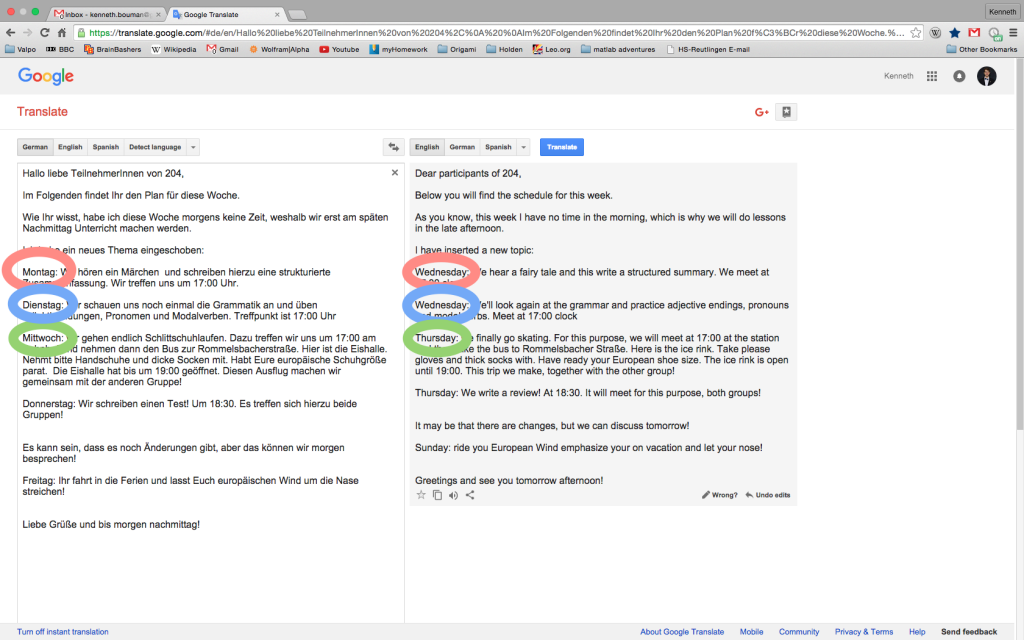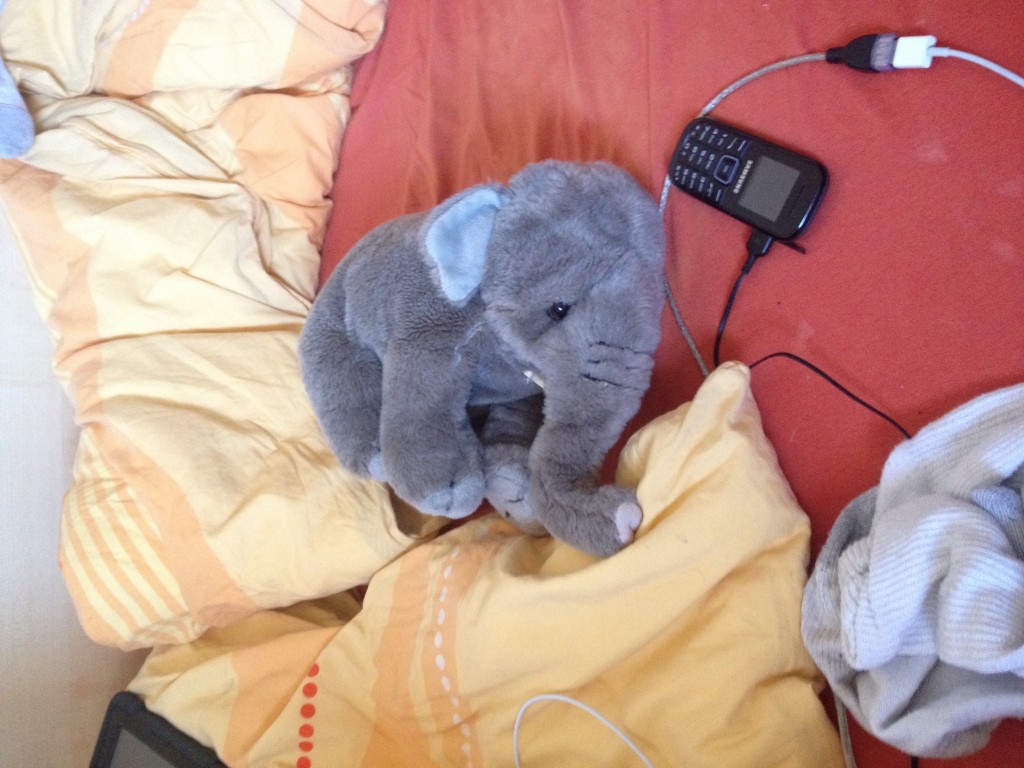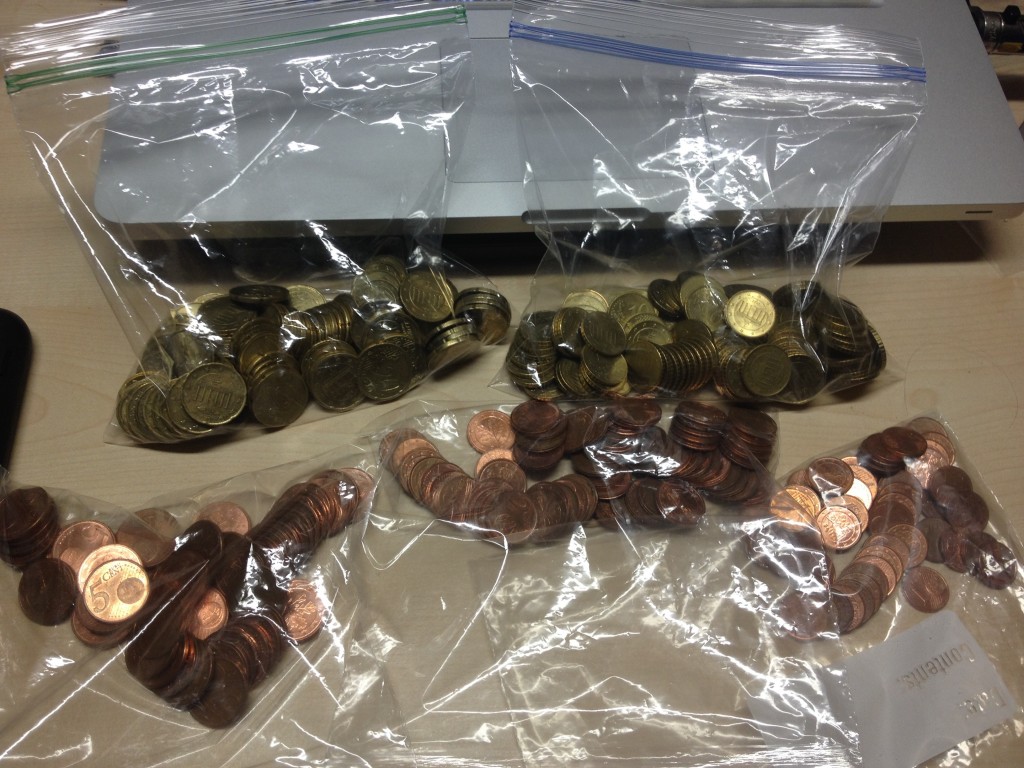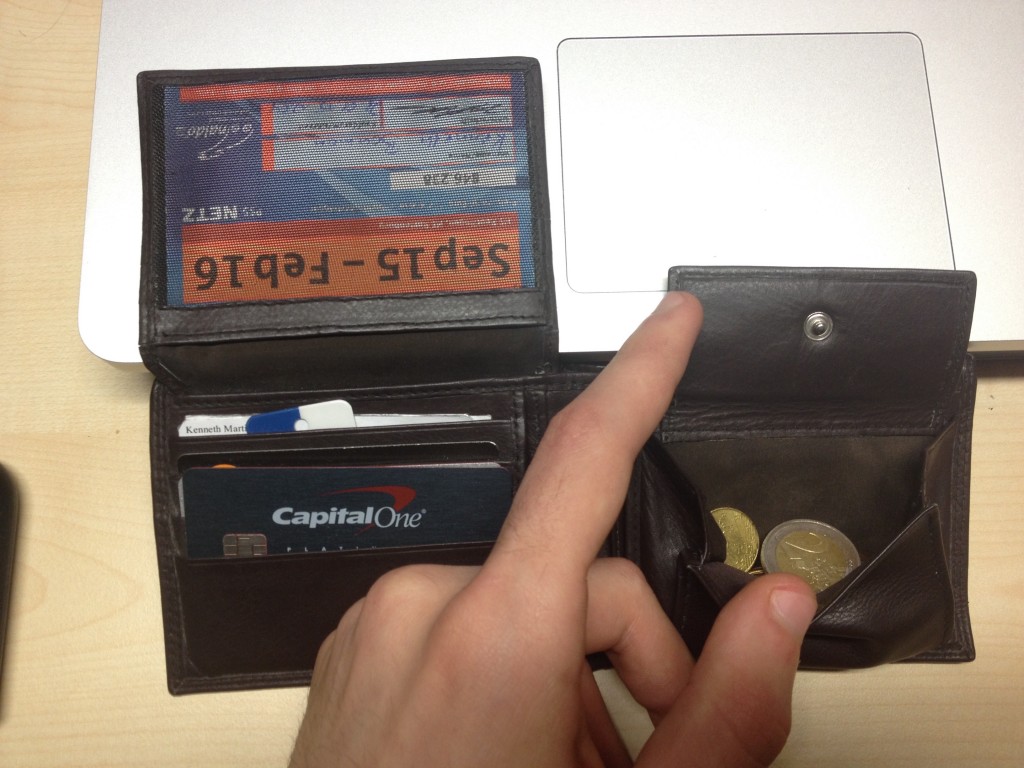Bring underwear and socks, and clothes that match the climate and cultural attitudes of wherever you’re going. This should go without saying. But beyond that, packing can be a somewhat stressful part of traveling, both for the simple weekend trips as well as for the whole semester. Some unnecessary things may sound like they could be useful, while other useful items may not occupy the foremost position in your mind. In this post, I will seek to differentiate between the useful and useless, as well as to provide some reasoning behind my assessments.
WARNING: Having only participated in the Reutlingen program, this entry is decidedly catered to my experiences in Germany. The most important thing is to know both yourself and where you’re going, and to pack accordingly.
First, let’s start with the unnecessary items.
I think it’s a priority to point out that you don’t need to set up your US phone with international roaming. Furthermore, I’ll argue that you shouldn’t try to do this at all. Never mind that it can be expensive, but it also doesn’t help you contact anybody with a German phone number. If you have roaming, and you want to call one of your german friends, then your friend will also be charged extra to answer your call, and that’s no fun for anybody. Instead of using your same phone number, just get a phone when you get there. If you don’t mind secondhand phones, there should be plenty of options in the cage in the director’s basement. If you do mind, go to the store and get a €5 pay-as-you-go phone and a SIM card. I’ve been very satisfied with my service from Vodafone with the CallYa Talk&Text plan. It a per-use charge instead of monthly, and has very good rates for calling to and from [as far as I can tell] anywhere in the EU.
For the other things that one might use a smartphone, I’ll still argue that you don’t need to be able to access a cell network 100% of the time, if at all. Apple Maps can be accessed without wifi or a mobile signal, so navigation is no reason to pay the extra money. If you load the map ahead of time, then you’ll be able to see [approximately] where in the world you are without having to be connected. There are also offline map app options, such as Here, which could be worth investigating. Wifi (called WLAN in Germany) is also very prevalent, so you’re well connected when you need to be. If you find yourself on Facebook often, and think that you need to be able to access that whenever you want, roaming won’t help you, but rather enable you. You have a problem, so a bit of a Facebook break might actually be good for you.
You don’t need to bring blankets, pillows, or any other linens – these are provided by the program. Furthermore, you probably don’t need to bring your own toothpaste, deodorant, and toiletries. These can be purchased, or if you’re lucky, possibly even found for free in the director’s storage cage. Perhaps bring small quantities of these things to get you into the first few weeks, but beyond that, everything you would ever need can be bought at the store.
You don’t really need to bring your own paper, notebooks, or school supplies. All of these things are inexpensive, and can be bought in stores upon your arrival. If you’re not pressed for space or weight in your luggage, you may include these things, but they aren’t strictly necessary.
German paper is kind of funny – it looks like what we might call graph paper in the US. As an engineer, I use it’s green-tinted cousin regularly for everything, so I don’t mind it, but if you really want only horizontal lines on your paper, perhaps you should bring some of that.
Unless using a dictionary is absolutely necessary for your studies, you really don’t need to bring one. They’re heavy and take up an enormous amount of luggage space. Instead, consider a healthily cautious blend of dict.leo.org, wiktionary.org, and translate.google.com as a good source of translations and definitions. I urge caution here, because sometimes online translators can be faulty. However, if you approach them with a sense of skepticism, always looking out for errors, they can be useful. Plus, the internet doesn’t weigh anything or take up any space, leaving plenty of room in your luggage for all the other things you’d need.

An extreme example of why it pays to be careful with online translation software. For those who don’t speak German, Montag = Monday, Dienstag = Tuesday, Mittwoch = Mid week = Wednesday, Donnerstag = Thursday.
Now let’s talk about some absolutely useful things to have. Hopefully I shouldn’t need to mention passports, power adapters, and a camera. Rather, some of these things are less-than-obvious.
You absolutely must bring a carry on-sized backpack (or suitcase, but I prefer a backpack) that can hold a week’s worth of clothes and supplies in it. During the fall semester, people were scrambling to borrow such backpacks for our two-week break. This was astounding to me, since I figured that everybody would already have such a backpack. You may have good luck finding such luggage in a outdoor or sporting goods store. You might also consider asking your parents or looking around your basement or garage. Though my main bag was purchased new last summer, I also brought another smaller “basement backpack” that came to Reutlingen in 1985 with my mother. This was my bag for day trips, including to the classroom.
Have a train pass. I had one from October to January. Sure, they’re expensive (over $1000 for 3 months, less for 2 months), but so long as you make an effort to use it, it pays for itself relatively quickly. Plus the convenience of being able to get on (nearly) any train and go (nearly) anywhere in the continent is truly unparalleled. Now that mine has expired, I’m sorely missing it. I’m even debating purchasing another, but we’ll have to see. At any rate, you owe yourself the opportunity to travel like this, so buy one.
Also get the Naldo Semester Ticket. You’ll do this in the first week in Reutlingen, so don’t need to pack it before you leave, but it’s useful enough that it merits being mentioned. It’s good for busses in Reutlingen, as well as busses and trains in the immediate region. Check out this map to see where it can take you.
As an additional note on the Naldo, if you want to save on train tickets to Stuttgart, buy them from Metzingen as your starting location instead of Reutlingen. Your Naldo pass can get you to Metzingen for free, so when you select it as your starting location instead of Reutlingen, you save €2.10 each way. Paying €10.20 instead of €12.30 may not seem like much of a savings, but it adds up quickly.
If you’re looking for an even cheaper (though slower) way to get to Stuttgart take the X3 bus to the Stuttgart Airport, and then the S-Bahn the rest of the way into town. This should cost you less that €5 each way.
Bring something that reminds you of home. I have one half of a set of two stuffed elephant toys, the other of which is with my fiancée Rachel back in the US. This elephant goes everywhere with me – within reason, of course. I don’t take it to class, but it has accompanied me on all of my big adventures.

Though the socks and the phone aren’t particularly special to me, I use them almost as often as the elephant. Peanut, by the way, is it’s name. Of course it has a name. Because I’m grown up, I now get to decide what that means. If you’re reading this, that statement applies to you too.
If you have easily portable hobbies, bring a few of them. I regularly play with mechanical puzzles (think Rubik’s cube), but figured that I’d be able to manage without one. This was a mistake. By the time Winter Break came around, I had purchased one online, had another brought from home, and received a third for Christmas that had been purchased at a Christmas market. Now, I’m doing much better.

From left to right: Purchased online; brought from home (thanks, Rachel!); Christmas present (thanks again, Rachel) from the Ulmer Weihnachtsmarkt.
Bring recipes, or have them in your head, or be able to find them online. Macaroni and cheese is a popular one among non-USAmericans. Brownies are also a bit of an USA phenomenon. Be prepared to share these with your floor mates.
I figured I’d be fine without a sewing kit, which turned out to be a foolish thing to figure. Now, I have one, and can highly recommend that you have one as well.
A laundry bag, or a plastic garbage bag in which you can store and transport laundry. Thicker works better, obviously. It’s also fairly useful to have spare bags, e.g. for dirty shoes, wet towels, or smelly laundry. This can help to keep your luggage clean. I promise I’m not your mother.
Finally, it’s ABSOLUTELY BENEFICIAL to have a good system to organize small change. This is often referred to as a wallet. Make sure it has a little button or zipper pocket for coins. Also, make sure that you use these coins over the course of the semester. In the fall, a classmate had a drawer full of nearly €40 in small change, and needed to get rid of it at the end of the semester. Since I was staying (still am!), I bought it all off of him at the bargain price of €30. Though I’ve been using them as diligently as possible, I still have a long way to go. However, even if they are going slowly, the wallet is still far superior to the failed organization system that is the classmate’s drawer.

This is more than a month into the €40 in 0.20-, 0.10-, 0.05-, 0.02-, and 0.01-cent pieces given to me by my classmate. I’m doing pretty well on the small ones, but the big ones still have a long way to go. Don’t travel in such a way that your money becomes organized like this by the people whom you give it to as you leave.

This shows a wallet with a button pouch – one of several acceptable ways to manage your small change from day to day. You can also see the aforementioned Naldo semester pass.
This isn’t something that you can bring, but you’ll certainly be unprepared for a semester abroad if you come without the desire to have new experiences and go new places. No matter how welcomed you are, you will not feel like you’re at home. This is the way it’s supposed to be. It will be uncomfortable. There will be things that you won’t be able to understand or do, simply because you’re not at home. You may even experience debilitating homesickness. However, it will also be fulfilling, and eye-opening. You will not return as the same person you were when you left. And this is just the way it should be. Whatever you bring with you, come with the expectation that you will change, the knowledge that it will be uncomfortable, and the guarantee that it will be okay no matter what.
Leave a Reply